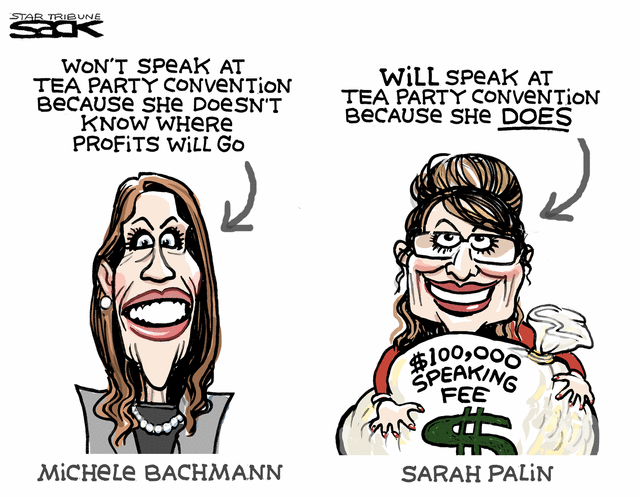In “Illiteracy: The Downfall of American Society”, Education Portal reports that 50 percent of adults in America cannot read a book written at an 8th grade level. 20 percent of Americans are functionally illiterate and read below a 5th grade level. 42 million American adults can’t read at all. The number of American adults classified as functionally illiterate increases by about 2.25 million each year.
Many of those people are Teabaggers . . .

Yeah. That’ll help.
Finding America on a map is also a problem. According to National Geographic News, 11 percent of young Americans can’t locate the United States on a map. The location of the Pacific Ocean is a mystery to 29 percent, 58 percent don’t know where Japan is, 65 percent don’t know where France is, 69 percent don’t know where the United Kingdom is.
Knowledge of current issues and historical events is just as abysmal. Saul Friedman notes that 34 percent of Americans still think Saddam Hussein was involved in 9/11, nearly one-third of Republicans don’t believe Obama was born in the United States, more than two-thirds don’t know what’s in Roe v. Wade, 24 percent could not name the country we fought in the Revolutionary War.
Many of these people vote, with predictably appalling results. According to Freedom Daily . . .
Political scientist Michael Carpini analyzed thousands of voter surveys and found that there was “virtually no relationship” between the political issues that low-knowledge voters said “matter most to them and the positions of the candidates they voted for on those issues. It was as if their vote was random.
Low knowledge voters comprise 36 percent of the electorate and provide the deciding margins in almost all contested congressional and presidential elections. Here in the 21st century, with multiple crises facing us, with the worst crisis of all–global warming–steadily intensifying, we have little if any chance of dealing with any of these crises through the political system, because our elections are not decided by the well-informed voters who make rational decisions in the voting booth, they’re decided by the voters who have no fucking idea what’s going on.




